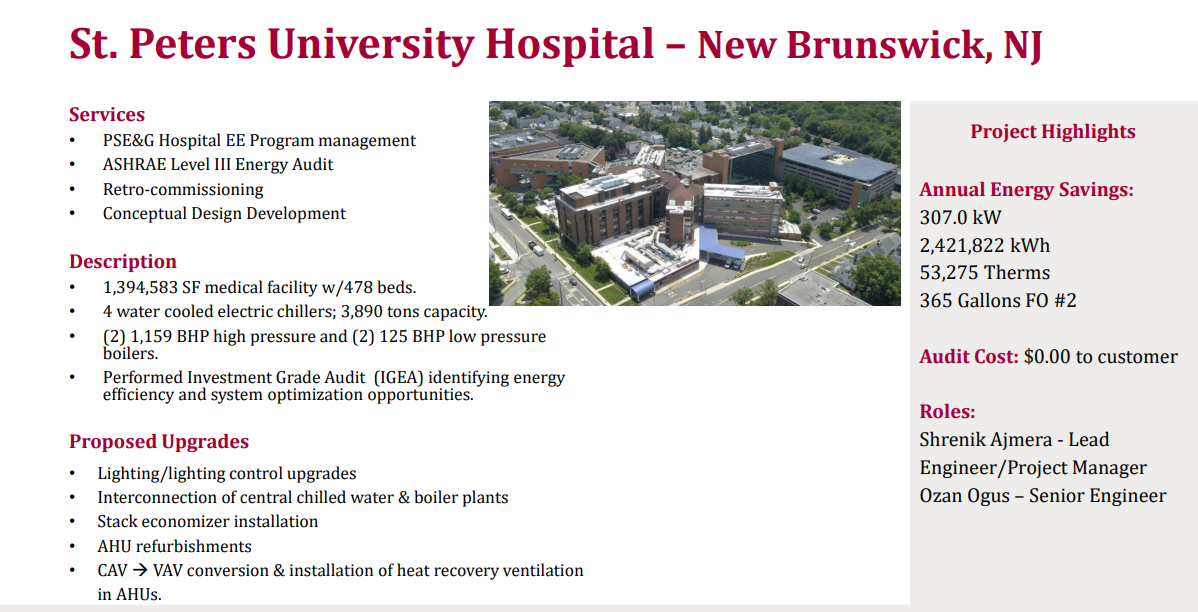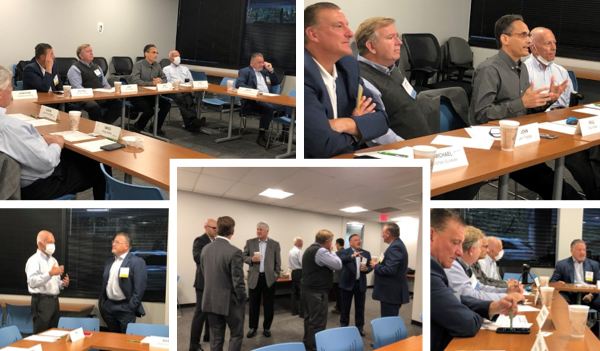Key Take Aways from Northern New Jersey’s November 2022 Meeting
Charles Hecht (Dresdner Robin) noted that multifamily rents in urban NNJ markets are still increasing, noting the higher population demands, a shortage of land for development, more environmental regulations, and the cost of construction.
Bill Hanson (NAI James E Hanson) added that multifamily remains strong and vacancy rates for industrial are still low. He cited a 20-acre Hackensack redevelopment project on the site of the old Bergen Record now under development by Russo Construction primarily for multifamily. Work on the first building began 3 months ago, and it is already 90% leased. The rest of the property is now heavily under construction. Capital rates are tightening, and fewer people are seeking loans. An even tighter capital market and higher pricing are anticipated next year. It will come down to the borrower; if a project looks good, banks will back it.
Mark Vizzini (Dresdner Robin) believes price increases and property interest rates will affect home and condo sales and will likely push up rental market pricing as well. Potential buyers may wait for the market to come down again before purchasing a home. His team is currently working on a couple of large cannabis cultivation facilities in South Jersey as well as a smaller, vertical facility in Newark. He added that projected tax revenues for the State, counties and municipalities from local cannabis sales will be enormous and hopes the Federal government will relax its banking restrictions for this product.
Paul Hacker (Axis Insurance) projected that we may see higher premiums for all areas next year due to an increase in claims for certain projects in other areas of the country. Paul detailed the continued rise and sophistication of cyber hacking. 90% of small and mid-sized companies, including construction firms, either don’t have cyber insurance or have too little. (An annual $1-2K policy would more than cover an average $200K ransom.) Once hackers invade a system, they can conduct surveillance for up to 270 days, researching system weaknesses, identifying targets, and designing specific ransomware for the targeted firm. They can also lock a company’s back-up system, encrypting it so it cannot be accessed. Ransoms are usually paid in bitcoin, not currency, and most hackers operate from other countries. As a result, payments are not traceable, and hackers are hard to find and prosecute.
Guest Edward Castelli (Donnelly Energy) leads his firm’s Business Development efforts in NJ, working closely with utility companies, local Boards of Education, town councils, small business, etc. on several initiatives to upgrade old energy usage to new “green” options for lighting, HVAC, refrigeration, and heating as well as EV charging stations. PSEG’s program offers 70-80% off total installation cost with zero interest over a short term. Other programs are anticipated. Ed noted that the NJCAR program is working with car dealerships to ensure they have sufficient AC and DC charging stations to meet the needs of electric car drivers. Eventually, charging stations will be required at grocery stores, shopping centers, office buildings, etc. All car manufacturers are expected to introduce new EV vehicles sooner than expected, eventually phasing out cars powered by gasoline. (GM expects to be 80% electric by 2023 and 100% by 2030; Volkswagen is no longer making gasoline fueled cars and will roll out new EV vehicles by 2025-2028.)
Guest / Speaker David Fallo (Netgains Engineering), Director of Project Development, works with clients and utilities on local and state levels to provide strategic decarbonization assessments and energy studies designed to facilitate climate action programs. Netgains conducts energy studies that encompasses energy development and design, engineering and TR work in tandem with state and municipalities, as well as utility providers.
- NJ has the most robust utility energy savings program in the country, serving a wide range of markets – universities & colleges, healthcare (more than 40 hospitals), public agencies, commercial buildings, and more.
- NJ and NY Incentive Programs – working with local and state programs and entities to maximize incentive and rebate programs for customers. Examples: PSEG,NJNG Engineering Solutions, Con Edison Multifamily Program, NYC & Con Edison Clean Heat Programs
- Legislative effect on property ownership: Property margins could be affected by inaction; impact of additional HOA assessment fees on condos; OR –proactive property owners who plan for and utilize state/local/utility company incentives can begin the shift to new energy-savings programs now






Recent Comments